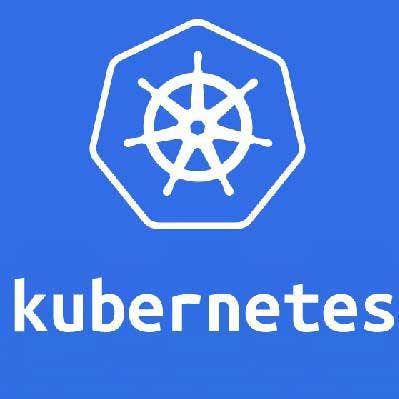The 10 Hottest Kubernetes Startups Of 2020
CRN compiled a list of some of the most cutting-edge upstarts making waves across the Kubernetes ecosystem.

Kubernetes In Action
It‘s been a few years now since Kubernetes took the cloud by storm.
The open-source container orchestrator has rapidly gone from a bleeding-edge technology developed at Google to something close to standardized infrastructure for cloud-native environments.
As enterprises and cloud services providers rapidly adopt Kubernetes to undergird modern applications, a new generation of startups is emerging to enhance the core technology with deeper observability, code delivery and integration, management and security features.
The following are 10 red-hot startups making waves across the Kubernetes ecosystem.
See the latest entry: The 10 Hottest Kubernetes Startups Of 2022 (So Far)

Alcide
CEO: Amir Ofek
Alcide, an Israel-based startup, is building continuous security into Kubernetes infrastructure.
The startup‘s AI-powered security platform evaluates configuration risks, visibility across clusters, runtime security events, and enforces a single policy framework. The technology enables enterprises to scale their Kubernetes deployments without compromising on safety.
Among the portfolio of offerings is Alicide kAudit, which automatically analyzes multicluster deployments in real time for breaches, misuses and anomalous behavior by scanning Kubernetes audit logs.

Codefresh
CEO: Raziel Tabib
Codefresh‘s CI/CD platform enables DevOps teams to deliver software upgrades faster into Kubernetes-orchestrated production environments.
The Mountain View, Calif.-based startup employs a GitOps model in its continuous delivery and collaboration platform geared for Kubernetes, allowing developers to create streamlined pipelines for cloud-native application deployment.
The startup recently released new tooling to enhance observability into those software deployments as well as controls over rollbacks.

Diamanti
CEO: Tom Barton
Diamanti has expanded its offerings well beyond hyper-converged appliances geared to run Kubernetes.
The startup out of San Jose, Calif., has morphed into a comprehensive cloud-native software vendor, with recent updates to the portfolio including Diamanti Ultima, a stand-alone data plane that virtualizes Kubernetes storage and networking, and Diamanti Spektra for Kubernetes management in hybrid clouds.
The company is looking to deliver those stand-alone software solutions through new partnerships with Dell and Lenovo.

Kubermatic
CEO: Sebastian Scheele
This German startup based in Hamburg offers software automating Kubernetes operations across multi-cloud, on-premises and edge environments.
Kubermatic Kubernetes Platform is used by many large enterprises to safely accelerate their cloud-native transformations.
The startup recently released KubeCarrier, adding an open-source Service Management Hub that enables operations teams to automate provisioning and life-cycle management of services, applications and API-accessible hardware devices by using Kubernetes Operators.

Lightrun
CEO: Ilan Peleg
Lightrun enhances debugging and performance monitoring of cloud-native applications deployed in Kubernetes-orchestrated production environments.
The Israeli startup‘s technology delivers greater transparency and observability into containerized workloads with an IDE plugin that introduces log lines, performance metrics and tracing of code running in production.
Lightrun can insert metrics, counters, traces and timers and enable real-time measuring of function durations to enhance the performance of applications built with Kubernetes-enabled microservices architectures.

Pulumi
CEO: Joe Duffy
The fast-growing infrastructure-as-code startup based in Seattle upped its Kubernetes game this summer with new cloud-native deployment options for Pulumi Crosswalk for Kubernetes.
Crosswalk for Kubernetes is a collection of playbooks and libraries that help DevOps teams configure, deploy and manage production Kubernetes clusters. Those playbooks are based on common usage patterns, informed by best practices for provisioning Kubernetes infrastructure and running containerized applications.

Shipa
CEO: Bruno Andrade
Shipa, a startup out of Santa Clara, Calif., offers a complete life-cycle application management framework for Kubernetes.
The platform builds in governance, guardrails and automated object creation and management for cloud-native applications. That application-centric approach frees developers from worrying about their underlying infrastructure.
Shipa directly integrates into many technology stacks, including managed Kubernetes services from the leading public clouds.

Spectro Cloud
CEO: Tenry Fu
This startup based in Santa Clara, Calif., enables enterprises to customize their Kubernetes infrastructure to the specific needs of their business.
With a declarative model for defining cluster profiles, Spectro Cloud automates deployment and maintenance of clusters across environments. Enterprises can roll out releases to a subset of users or servers in a way that ensures upgrades don‘t break dependencies or other ecosystem components.
The startup recently released an on-premises version of its flagship cloud product to meet customer demand for self-managed deployment options in private cloud and hybrid environments.

Styra
CEO: Bill Mann
Styra is looking to ease compliance headaches in a Kubernetes-orchestrated world.
The startup‘s Declarative Authorization Service (DAS) looks to knock down hurdles created by strict governance and auditing rules that slow the process of moving workloads into production Kubernetes environments.
Styra DAS combines a series of Compliance Packs that implement Kubernetes admission control policies and Policy Stacks that simplify management of policies across clusters. Those solutions offer a graphical library that makes it easier for businesses to create guardrails, ensuring they are always in accord with regulatory and security standards.

Weaveworks
CEO: Alexis Richardson
London-based Weaveworks looks to make it easier to run Kubernetes everywhere.
Weave Kubernetes Platform addresses that challenge with the capability to deploy and operate clusters on multiple compute substrates—the installer can launch clusters on bare-metal, virtualized instances and managed Kubernetes services from the public cloud giants.
The GitOps-enabled capability allows users to define a “model” for the cluster, then the system can translate those definitions to specific implementations for each back-end environment.
The core technology comes from the Cluster Management Kubernetes SIG, which provides a standard API for the installer system.